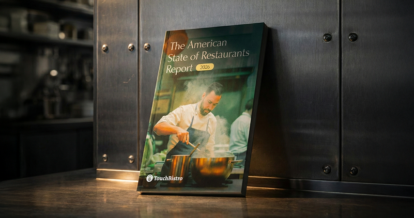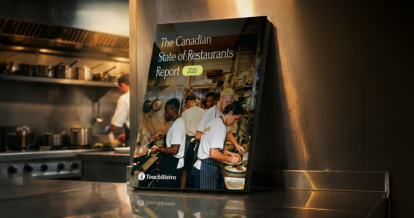Feel like you’ve been selling your soul to staff scheduling? Are you constantly sorting through availability lists and time-off requests, facing pesky “when will next week’s schedule be posted?” questions, and dealing with the turmoil of shift trading? Enough is enough!
Here are 5 tips to help you take the irritation out of scheduling for your restaurant.
1. Set Expectations from the Get-Go
Make your life a little easier by laying down your “scheduling laws” during the hiring process – especially if you use a digital scheduling software that’s integrated with your POS. This way, you can ensure future staff are aware of how scheduling is conducted at your restaurant from the get-go. Be sure to discuss things like, how often you create schedules, how much advanced notice is needed for time-off requests, and shift trading protocols.
2. Keep on Top of Your Service Trends
You’re setting yourself up for failure if you’re attempting to schedule employees without knowing your business like the back of your hand. In order to create a successful schedule it’s crucial that you reference your business’s insights. Before putting pen to paper, figure out which hours, days, and months are busiest. Whether you have a big event coming up in your area, a holiday quickly approaching, or your Friday nights are always crazy, take the time to map out your peak hours and schedule staff accordingly.
3. Provide Easy Access to Schedules
If you still have a printed schedule posted on your kitchen’s back wall, with countless illegible names scratched out and filled in – you’re doing it wrong. With every aspect of our lives going digital these days, your schedule should receive the same treatment.
Technology has changed life as we know it, increasing efficiency and reducing stress levels with everything it touches. Tons of restaurateurs today have gone digital, swearing by text and email to provide their employees easy and instant access to their schedules. At the very least, ensure your schedule is posted in an area with high visibility, as well as providing each employee with their own personal copy through email or access to a shared document online.
4. Create Open Channels of Communication
In order to keep your finger on the pulse of both your restaurant and staff, open channels of communication are a must – especially if you’re using a complex system like a rotating schedule. Prioritize communication with your team to avoid the disastrous toll miscommunication can wreak on your schedule. Two common examples: overstaffing and understaffing. With overstaffing on slow night, you end up sending employees home, indirectly creating a breeding ground for hostility, and with understaffing, employees are overworked, ultimately increasing the chances of employee burnout.
Avoid these two situations by implementing a communication process that works at your restaurant. A messenger platform, like Slack or Basecamp could be the perfect solution to make your scheduling duties less time consuming.
5. Use a Smart Scheduling Tool
If you have a large staff or want to streamline the scheduling process even more, invest in the best restaurant scheduling software. For example, 7Shifts is a cloud-based online tool, created specifically for restaurants, and has a mobile app perfect for on-the-go managers and staff. You can build schedules in one click, approve or decline staff requests on the fly, forecast labor costs, send group texts and emails, and much more. By implementing a smart scheduling tool you’ll automatically have tips 1-4 above covered.
Do yourself and your staff a favor and use these tips to make scheduling part of your restaurant’s ecosystem, and not the bane of your existence. You can thank us later.
Download your free employee handbook template
Sign up for our free weekly TouchBistro Newsletter







